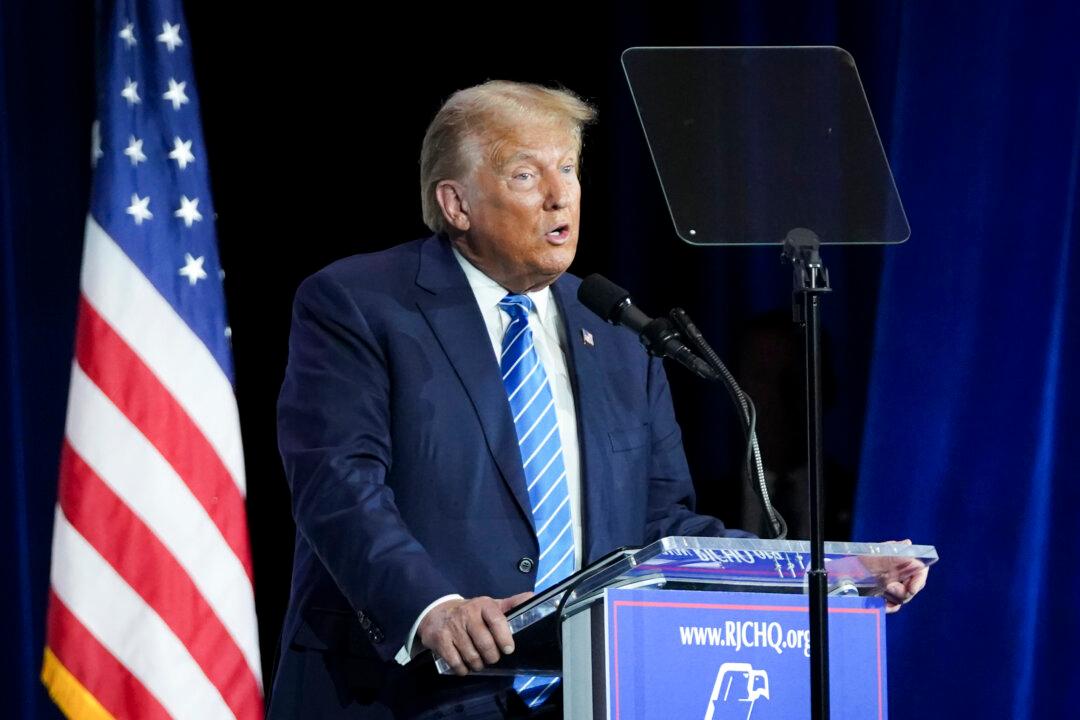U.S. District Judge Tanya Chutkan rejected a motion filed by the American Civil Liberties Union (ACLU) to file an amici brief opposing the gag order on former President Donald Trump.
President Trump is being prosecuted by special counsel Jack Smith, who alleges that the former president interfered with the 2020 elections via “deceit” and “dishonest” means. The special counsel’s office had proposed a gag order, and after a hearing, Judge Chutkan granted a gag order, albeit of a different nature than originally proposed.





